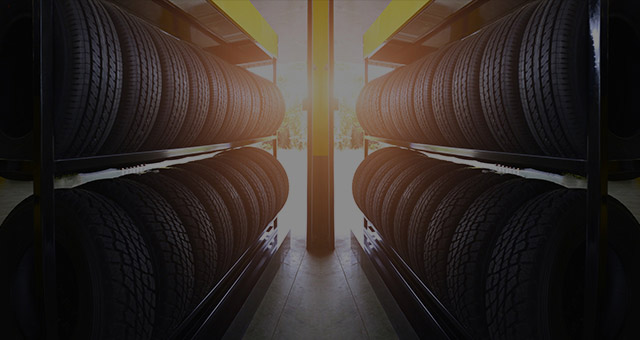Budget Friendly Discount Tires Morris IL: Unbeatable Prices, Quality Guaranteed
Budget Friendly Discount Tires Morris IL: Unbeatable Prices, Quality Guaranteed
Blog Article
Tire Solution: Comprehending Tire Stress Monitoring Solutions
Comprehending Tire Pressure Surveillance Solutions (TPMS) is a crucial aspect of keeping ideal vehicle performance and security on the roadway. With improvements in automobile innovation, TPMS has ended up being a common feature in modern vehicles, supplying real-time info on tire pressure degrees.

Value of TPMS
The value of Tire Pressure Tracking Solutions (TPMS) lies in their capacity to improve car safety and security and efficiency through real-time surveillance of tire stress degrees. Preserving the appropriate tire stress is important for making sure ideal handling, braking, and total safety of an automobile. TPMS gives chauffeurs with immediate comments on any kind of underinflated or overinflated tires, enabling prompt modifications to be made.
Elements of TPMS
Making up numerous important elements, a Tire Pressure Surveillance System (TPMS) functions as an advanced safety feature in modern-day lorries. The primary elements of a TPMS include sensing units, a control module, and a caution sign. Sensing units are commonly located in the tire valve stem or affixed to the wheel assembly, where they gauge tire stress and transmit data to the control module. The control component procedures this information and causes a warning if it detects dramatically reduced pressure in any one of the tires. The warning indication, usually a sign on the control panel, alerts the driver to check the damaged tire or tires. Some progressed TPMS designs additionally display the real tire pressure readings for each tire, providing vehicle drivers with real-time info to make certain optimal tire efficiency and security. By monitoring tire pressure continually, TPMS assists avoid mishaps, minimizes tire wear, and boosts fuel performance, making it a vital component for vehicle safety and performance.
Kinds Of TPMS

On the various other hand, indirect TPMS depends on the lorry's wheel rate sensors to monitor tire stress. This system discovers underinflation by contrasting the rotational rates of the wheels. Indirect TPMS is less pricey than direct TPMS, as it utilizes existing sensors within the automobile.
While straight TPMS offers much more accurate analyses, indirect TPMS is easier in design and commonly needs less upkeep. Both systems have their advantages and restrictions, and the selection in between them frequently relies on variables such as expense, car make, and individual choice. Comprehending the distinctions in between these two kinds of TPMS can assist vehicle owners make informed choices concerning tire maintenance and security.
TPMS Maintenance Tips
Efficient maintenance of TPMS is important for making certain optimal efficiency Get More Info and security of your lorry. Routinely examining the TPMS sensing units for any kind of damages or rust is essential. Make sure that the sensors are clean and cost-free from particles that can interfere with their performance. In addition, it is suggested to inspect the sensor batteries occasionally and replace them as needed to guarantee accurate readings. Conduct routine examine the tire stress levels and contrast them with the TPMS readings to guarantee they are constant. If there are any discrepancies, rectify the system complying with the producer's standards. Additionally, during tire turning or substitute, make certain that the TPMS parts are managed very carefully to stop any prospective damages. If the TPMS warning light illuminates on the control panel, deal with the issue quickly by examining the tire pressures and the total system for any type of faults. By sticking to these maintenance tips, you can lengthen the life expectancy of your TPMS and boost the safety and security of your driving experience.
Benefits of Appropriate Tire Stress
Preserving appropriate tire stress, as highlighted in TPMS Upkeep Tips, is essential for enjoying the many advantages connected with optimum tire pressure degrees. Among the key advantages of maintaining the proper tire pressure is boosted gas performance. When tires are effectively inflated, there is much less moving resistance, resulting in far better gas economy. Furthermore, appropriate tire pressure makes sure even tire wear, extending the lifespan of the Bonuses tires and promoting more secure driving problems. With the ideal tire stress, vehicles likewise have far better handling and traction, specifically in negative climate condition. This can boost total driving performance and safety and security for the motorist and passengers. Moreover, maintaining ideal tire stress can add to a smoother and a lot more comfortable experience by minimizing resonances and noise caused by underinflated tires. To conclude, the benefits of proper tire pressure surpass simply tire longevity; they include improved gas performance, boosted security, reference better lorry efficiency, and general driving comfort.
Verdict
In conclusion, recognizing tire pressure monitoring systems (TPMS) is critical for maintaining ideal tire pressure and ensuring lorry safety and security. By recognizing the relevance of TPMS, recognizing with its elements, knowing the various kinds readily available, adhering to appropriate upkeep pointers, and realizing the benefits of preserving proper tire stress, chauffeurs can boost their driving experience and lengthen the life expectancy of their tires. Proper tire pressure is crucial to safe and reliable lorry procedure.

Report this page